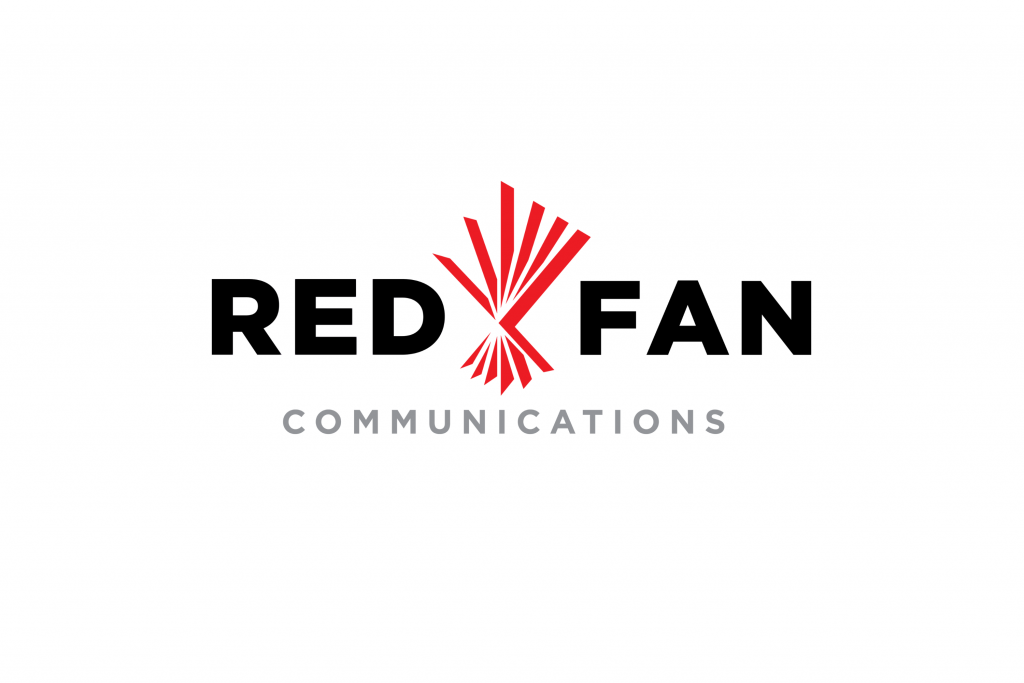By most standards, there’s a lot happening in the world of public relations and communications right now: an unconventional American presidency, high-profile cases of successful (and botched) brand activism, the proliferation of fake news and an ever-evolving list of hot trends that public relations professionals and their clients need to know about.
There’s simply no better person to ask about these topics than PR guru and 30-year journalist Paul Holmes, founder and chair of The Holmes Group. The Holmes Group provides knowledge and insight to public relations professionals across a variety of platforms, including a website, an e-newsletter, events, printed reports, research and consulting assignments and the coveted SABRE Awards. The group’s flagship title, The Holmes Report covers the public relations business in the Americas, EMEA and the Asia Pacific region. In 2011, Holmes was inducted into the ICCO Hall of Fame.
Paul was gracious enough to send Red Fan’s president and founder, Kathleen Lucente, some comments about some of the hottest topics in communications. We hope you enjoy reading as much as we enjoyed asking.
LUCENTE: You spoke recently with Christopher Miller at Ben & Jerry’s about the company’s history of brand activism. We’ve seen companies do it well recently (e.g. Lyft donating $1 million to the ACLU following President Trump’s travel ban) and some not so well (e.g. Uber, Pepsi). Do you think cause marketing lends itself to particular industries or sectors, or do you believe every brand has an opportunity to take a stance on sociopolitical issues, provided they can do so in authentic ways that mirror the values of their customers and the company?
HOLMES: I have seen CSR efforts from gambling companies and even pornography sites (PornHub has a scholarship program), so I think it’s possible to imbue almost any product or service with purpose.
Obviously, I would argue that purpose is most meaningful when it is ingrained in an organization’s DNA, so that it becomes part of the culture and, in the best cases, a performance metric for both the business and its people. In such cases, purpose-driven initiatives can turn consumers into brand advocates in a way that ordinary marketing activities cannot.
What doesn’t work is tokenism: paying lip service to the idea of purpose, or cause or responsibility without any real commitment.
LUCENTE: Celebrity endorsements and spokespeople still seem to be alive and kicking even with some incredibly messy examples of how these things can go wrong. What is your view on these arrangements in this day and age?
HOLMES: I think you have to be very careful with celebrities. I think there are issues companies and celebrities have to “earn” the right to discuss. Race is one of those issues: When Starbucks stepped into the debate on race a year or so ago, there was a backlash because the feeling was that Starbucks had done nothing to earn the role it wanted to assume. Same with Pepsi and Kendall Jenner this year—if they’d worked with someone like Beyoncé or Serena Williams, maybe things would have gone differently, but Kendall Jenner had no track record of activism, of being “woke” on the issue.
LUCENTE: If you had to take the role of head of communications for the White House right now, what would be the things you would insist on before taking that job?
HOLMES: There is nothing that could persuade me to take that job.
First of all, the environment seems to be poisonous, and that appears to be the kind of environment the president deliberately seeks to cultivate. Even if he wanted to, I don’t believe the president iscapable of doing anything to change at this point. He is a toxic mix of ignorance and arrogance, self-pity and over-confidence, a profoundly stupid man who believes himself to be smart.
Second of all, I don’t think you can do that job in this administration without lying about pretty much everything. Voter fraud? Crowd size? Russia?
Perhaps if I were a true believer in the cause of screwing over poor people and minorities in order to concentrate more power in the hands of rich white men, I might be able to put up with the toxic culture of this White House, but since I’m not…
LUCENTE: The rise of fake news in the wake of the 2016 election has placed both journalists and PR people in an awkward situation. Fake news rose out of a growing distrust in the media’s credibility, especially when reporting on political issues, combined with the virality of social and digital media and the general polarization of American and even global politics, resulting in a web of mis- and disinformation among the public. Both journalists and PR people rely on their ability to remain credible and trustworthy, both of which are characteristics the media is lacking among the public at the moment. How can journalists and PR people work together to rebuild credibility in the press and among brands?
HOLMES: There are a number of things that PR people can do. I think we can work with media organizations and academics on media literacy, for example, particularly among younger people. I think we can help with courses that teach critical thinking skills. And I think we can help advance scientific curiosity. All of these things help to immunize people against false information and false beliefs, and public education is supposed to be one of the things we do well.
Beyond that, though, we need to commit not just to truthfulness, but to intellectual honesty—because anything less helps to corrupt the channels of communication on which we depend. We have to advocates for our clients, but we have to be honest advocates. Our job is to build relationships—it’s right there in our name—and you can’t do that by manipulating people and spinning the truth.
LUCENTE: Do you believe Facebook, Apple, Google and the other tech giants are doing enough to combat fake news online?
HOLMES: Not yet. I think they truly believed they were neutral parties, simply providing an algorithm that would deliver the right news to the right people. Now they have seen how that algorithm can be manipulated, they are still figuring out how to respond appropriately.
LUCENTE: In an article you wrote earlier this year on the difficulties PR people have in defining their own profession, you define PR as “the discipline of managing the relationship between an organization and the people upon whom it depends for success and with whom it interacts, and ensuring that those relationships facilitate the organization’s strategic objectives.” Do you envision this definition evolving in the next few years?
HOLMES: I tried to make the definition as timeless, and as independent of technological developments as possible. I think as an industry we get caught up in the tools and techniques we use—digital and social media, influencer marketing—and those things evolve constantly. What seems timeless to me is the idea that companies need strong, mutually beneficial relationships in order to survive and thrive. For me, the relationship is the product we should be selling, and everything else we do is a means to that end.
LUCENTE: How do brands survive/thrive in the post-truth era? What do they have to do differently now to instill trust in the public?
HOLMES: I am fond of saying that for marketers, the digital revolution changed everything. Your brand is no longer what you tell people about yourself, it’s what they say about you when your back is metaphorically turned. It’s all of those conversations they are having, online or off, about your products and services. For PR people, not as much has changed: The fundamentals—transparency, credibility, authenticity, engagement, dialogue—are the same. What’s changed is that if you fall short on any of those things, you will be found out much more swiftly and punished much more severely.
I think that means doing what good PR people have always done, but more so. We have to be not just honest, but intellectually honest. We have to respect the integrity of communications channels, and the intelligence of our audience. Even at a time when some high-profile people are succeeding by doing the opposite.
LUCENTE: You said in a 2016 speech in Moscow that PR professionals had to move past earned media as the primary channel that determined success. Do you believe earned media is still the most important (with the caveat that PR professionals nonetheless need to embrace other media channels/models), or do you think more paid, owned or shared media is now more important?
HOLMES: I did? Sounds like something I would have said.
I have always believed in what I call the control-credibility continuum, which is to say that the more control you have over your message the less credible it becomes; the more you relinquish control, the more you gain credibility. And I believe that credibility is the most precious commodity in modern communications—so earned media will always be important.
At the same time, I think companies can earn credibility over time. And they can leverage that credibility to communicate directly with their stakeholders, using paid and owned and shared channels—and PR needs to understand that sometimes those channels can deliver unfiltered messages, or guaranteed reach in a way earned media cannot.
LUCENTE: You’ve built a career in talking about reputation management. Why is this a focus that CEOs should invest in proactively and how should they be viewing it in your opinion?
HOLMES: I believe that every time a company makes a decision, the decision has four broad sets of implications: operational, financial, legal and reputational. I think reputational implications are just as important as any of the others, but are often ignored because they are not well understood, not easily predictable, or not taken seriously. This failure to think through reputation management is a great boon to the crisis management community, but a disaster for corporations.
In an age of radical transparency, reputational implications can have a massive impact—and CEOs need to train themselves to think about reputation and to consult with reputation experts when decisions are made.
LUCENTE: If you were building a boutique agency today and you could throw away the old school ways, the agency staffing titles and determine the priority services, create your own set of rules and offerings—what would you prioritize?
HOLMES: One, data and analytics—whoever has the best data has the best insight; whoever has the best insight has the best strategy; whoever has the best strategy has the best chance of winning the pitch and leading the marketing/communications process.
Two, behavioral science—because we need to understand what really drives decision-making and what really changes minds, and it isn’t always about giving people the right information; it’s about overcoming all the roadblocks our minds throw up to rational decision-making.
And three, storytelling—because human beings remember and respond to stories, not to facts. And because the story comes first, and the channels for telling that story come after.
LUCENTE: What’s the single best thing you’ve seen come out of the evolution of the PR industry in the last 10 years?
HOLMES: A recognition of the importance of data and analytics. Although that recognition has not yet been followed by the necessary investment.
LUCENTE: Do you have a list of bloggers and editors you follow religiously?
HOLMES: The only publications I never miss are HBR and The Economist (I am so old school). I scan the Guardian and the Financial Times and (since the election) The Washington Post. I read some columnists at the NYT (Krugman especially). Nate Silver and his colleagues. Vox. A number of baseball blogs that emphasize sabermetrics and stats. Wonkette when I need to vent.






